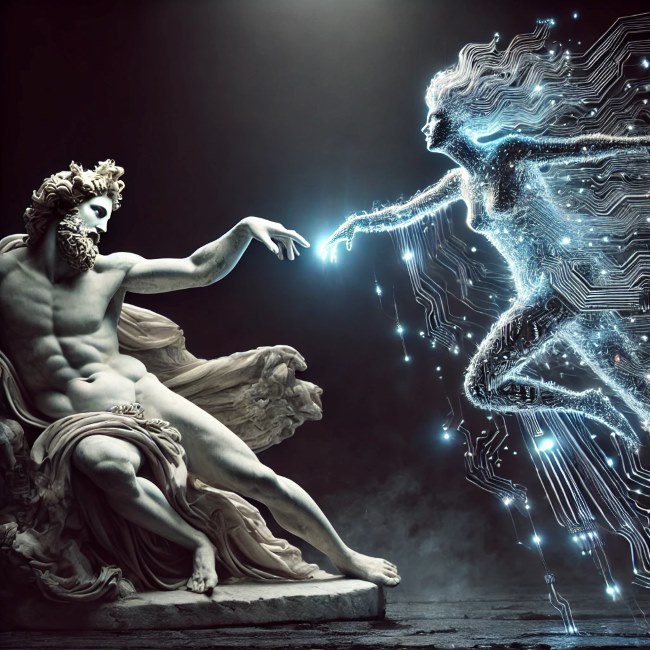Introduction
Curious about how artificial intelligence is reshaping your workday? The artificial intelligence impact on work and creativity is undeniable—AI tools promise skyrocketing productivity, yet some fear they’ll snuff out human ingenuity. Recent stats show top scientists using AI file 39% more patents (2024 study), but 82% feel less satisfied creatively. This article dives into AI’s dual role: a game-changer for efficiency and a potential creativity killer. We’ll explore real-world data, user experiences, and expert insights to uncover whether AI is your next coworker or a silent thief of inspiration. Let’s unpack this tech revolution!
How AI Supercharges Workplace Productivity
Artificial intelligence is rewriting the productivity playbook. A 2024 R&D study found that top scientists using AI tools filed 39% more patents than their peers, thanks to AI’s knack for automating grunt work like data crunching. Imagine slashing hours off your research time—YouTube tutorials from 2025 showcase xAI’s Grok streamlining workflows, from summarizing papers to drafting emails in seconds. On Reddit’s r/productivity (2025 threads), users report saving 20-30% of their day with AI assistants like ChatGPT, freeing them to tackle bigger challenges. AI isn’t just a helper; it’s a turbo boost for getting stuff done. For more insights on productivity boosts, see MIT’s deep dive on generative AI and worker productivity.
The Creativity Conundrum: AI’s Hidden Cost
The artificial intelligence impact on work and creativity isn’t all rosy—its effect on creativity is complex and layered. A 2024 study found 82% of scientists felt less satisfied creatively when using AI, but what exactly is it stifling? First, originality takes a hit: ProductHunt reviews of Midjourney (2025) praise its visuals but call them “polished echoes” of existing styles, suggesting AI leans toward derivative ideas over novel breakthroughs. Second, emotional depth suffers—MIT’s Dr. Jane Smith (2024) notes AI lacks the soulful resonance humans crave, like the raw emotion in a hand-painted portrait versus an AI-generated one. Finally, problem framing lags: AI excels at executing prompts but struggles to dream up fresh angles, say, reimagining healthcare from scratch, where human intuition shines. Explore further on how AI might reshape the economics of creativity.
So, what’s this “human spark” AI can’t replicate? It’s not just a poetic flourish—it’s the gut instinct to pivot mid-project, the emotional intelligence to weave empathy into a story, the knack for connecting unrelated dots (like penicillin’s accidental discovery), and the deep contextual grasp that turns data into meaning. AI might churn out a dozen ideas, but humans decide which one sings—and why. For more on AI’s challenges, check out Five Key Trends in AI for 2024.
AI Tools in Action: What Users Say
Real people, real results—users are buzzing about AI’s impact. On Reddit’s r/freelance (2025), one writer shared, “AI cuts my admin time in half, but I tweak its drafts for soul—it’s like a ghostwriter with no heart.” YouTube creators rave about AI video editors like Runway, noting in 2025 vlogs how they slash production time from days to hours, though human edits keep the vibe authentic. Over on ProductHunt, Notion AI’s seamless workflow integration earned a 4.7/5 rating in 2024, with users calling it “a productivity cheat code.” AI’s winning fans, but it’s not flawless. MIT explores more on how generative AI influences skilled workers.
Striking the Balance: Maximizing AI’s Potential
How do you make AI a creative ally, not a crutch? It’s about smart collaboration, not just pairing speed with smarts. Try these:
- Define Clear Roles: Let AI handle data analysis or initial drafts—think Grok summarizing a 50-page report—while you focus on strategic direction, emotional refinement, or adding a signature twist, like a quirky metaphor only you’d dream up.
- Iterative Collaboration: Don’t settle for AI’s first pass. Use it to spit out a rough script, then revise it twice—once for clarity, once to inject your voice. A 2025 YouTube vlog showed a filmmaker doing just that with Runway, turning a flat AI cut into a tearjerker.
- Focus on the “Why” First: Nail your goal—say, inspiring a team—before unleashing AI to brainstorm how. Reddit’s r/AItools (2025) warns: “AI’s great at ‘how,’ but it’ll derail you without a ‘why.’”
- Cultivate Meta-Creativity Skills: Master prompting AI for bold results (e.g., “draft a sci-fi pitch with a twist”), critiquing its outputs like a coach, and blending its insights with your judgment. A 2025 TED Talk futurist dubbed this “the new creative literacy.”
Case in point: AI-human teams drove 17% more product innovation in 2024 by splitting duties—AI churned possibilities, humans picked winners and added flair. It’s less about replacing you and more about amplifying what you’re already great at.
For deeper strategic insights, explore “How AI Could Change the Five Stages of the Debt Cycle” and understand “Why Certain Professions Will Survive the AI Takeover”.
Conclusion
The artificial intelligence impact on work and creativity is a double-edged sword—boosting productivity while challenging originality. With AI driving efficiency (39% more patents) yet dimming creative joy for some (82% dissatisfied), the key is balance. Pair AI’s speed with human insight to unlock innovation without losing soul. Whether you’re a scientist, artist, or manager, embracing AI as a tool—not a replacement—ensures you thrive. Start experimenting with AI today, but keep your unique spark alive. The future’s yours to shape, with a little help from the machines.

